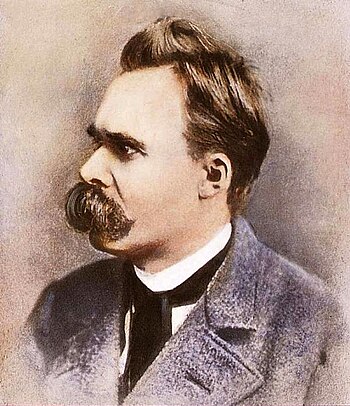| Friedrich Nietzsche (Photo credit: Wikipedia) |
“Without music, life would be a mistake.” -- Friedrich NietzscheThis quote got me thinking about ways to practice the piano. How do you do it? Do you have a routine plan? A friend of mine shared her thoughts with me that I would like to pass on. See if it makes sense.
Do you remember walking through the woods for the first time with your friends? Remember how carefully you walked through making sure you wouldn't get hurt or scratched by stickers or poison ivy? You couldn't run the first time through the woods until you and your friends went back and forth until you eventually made a path that could easily run through.
This article is about my experience with slow and perfect practice at the piano.
Slow practice = perfect practice = perfect playing. I've always had a problem with taking my time to learn a piece of new music. I would rush through the piece making mistake after mistake. I didn't realize that I was practicing to make the same mistakes again and again. So, I thought to myself, how can I eliminate so many mistakes during practice so that I can practice perfectly? The answer was to practice slow enough so that I would not make any mistakes.
I would take my music away from the piano and study the written music checking the time signature, tempo, rhythm, key signature and all expressive marks. I would check the chords and the progressions of the chords until I had an idea of what the composer had written, then very slowly I would attempt to begin the process of slow practice.
Slow practice helps you to eliminate your mistakes from the beginning. You don't play any notes or chords until you have worked it out first. I usually let my finger hover over the keys without playing them several times to get a feel of what I should be doing, then slowly working on any other parts until the first section I worked on was smooth. Then I would gradually increase the tempo of the metronome until I've reached the desired tempo settings given by the composer.
If I did make a mistake, I would correct it immediately. This is very important so you won't practice mistakes. Once a passage is smooth and flowing correctly, I would add a few extra chords or measures of the song and work on them until smooth and then add them to the first part of the song I've learned. I keep working this way until the whole song is completed.
It doesn't matter how long it takes to accomplish a whole piece. Some songs take only a few minutes and others will take days, weeks or even months to complete. I try to stay on my level of playing and gradually increase the difficulty as I go.
When I'm ready to perform, I'm not worried about making mistakes because I didn't practice them during the learning stages.
More Articles
You may be interested in Gospel Core Essentials There's an audio course, a workbook and a home study course.
If you enjoyed this blog post, please consider following on Bloglovin'
Keep in touch with me on Twitter, Facebook, Google+, YouTube and Pinterest, too!

"Jazz washes away the dust of every day life." -- Art Blakey






